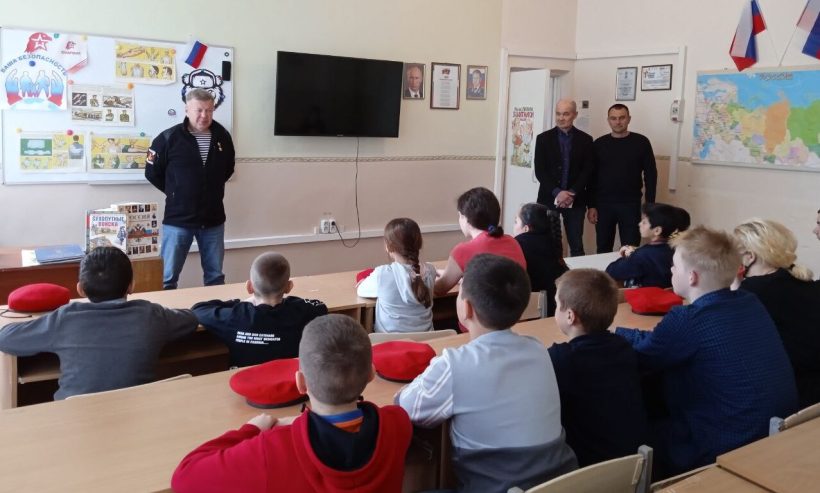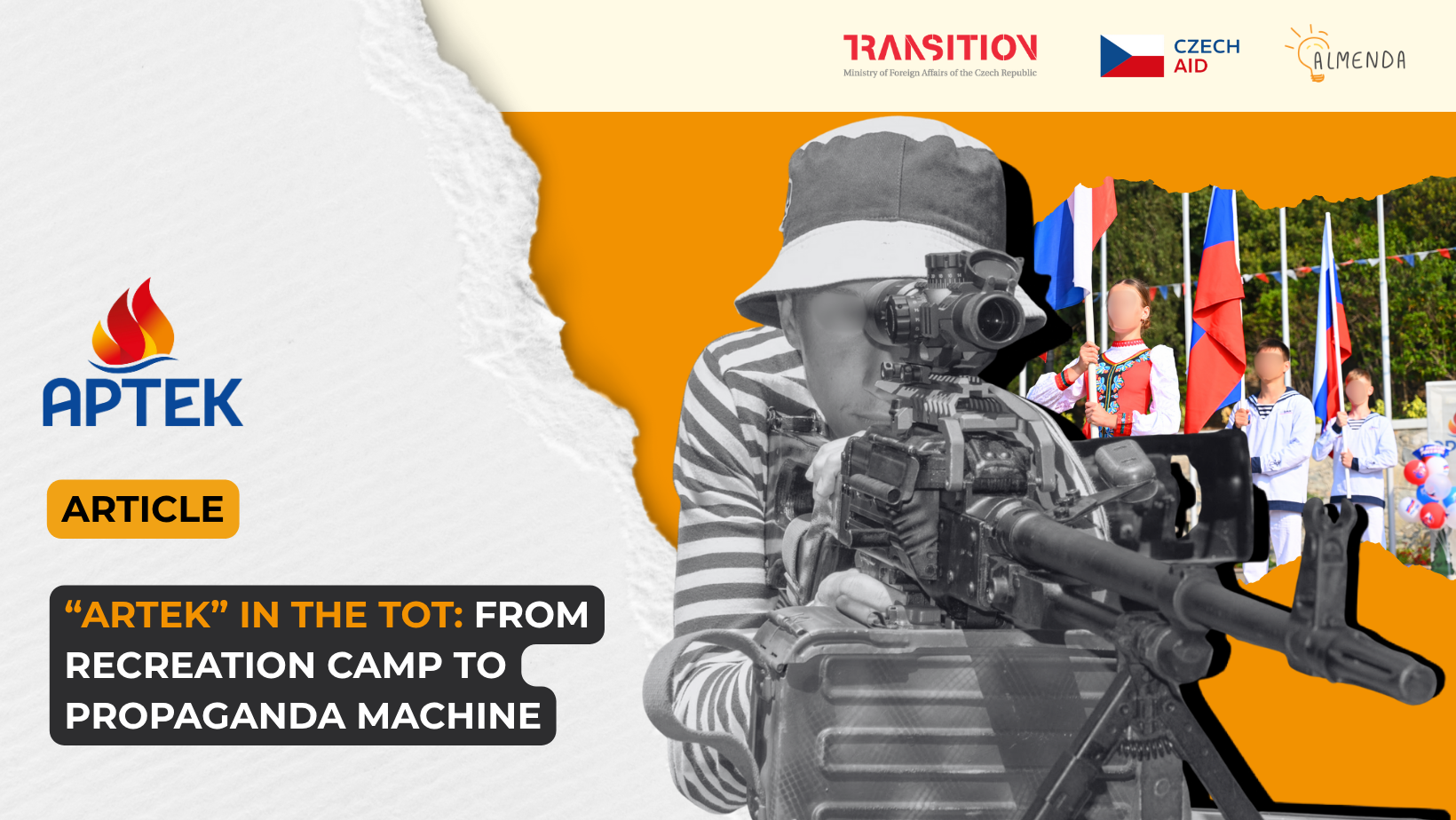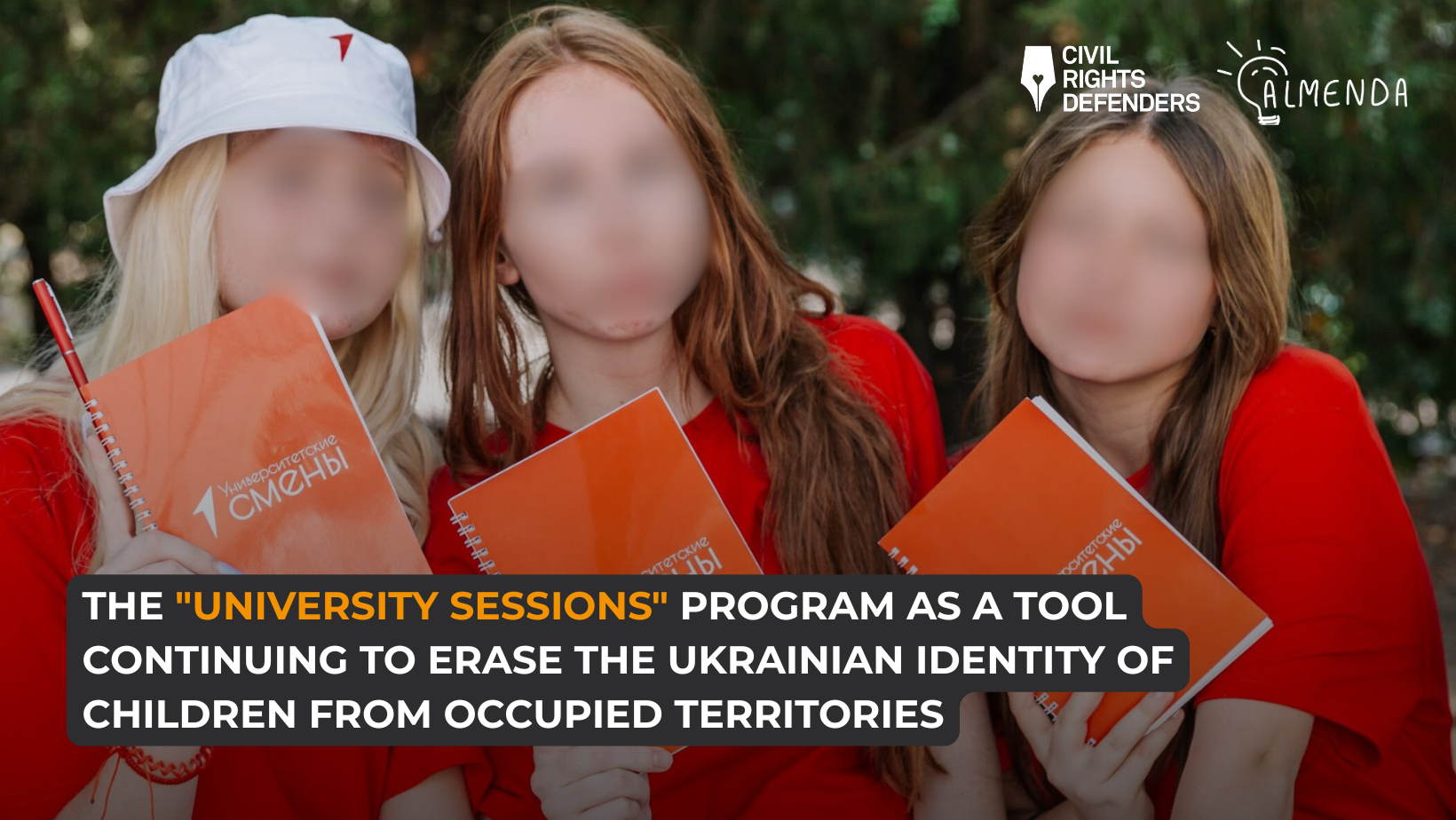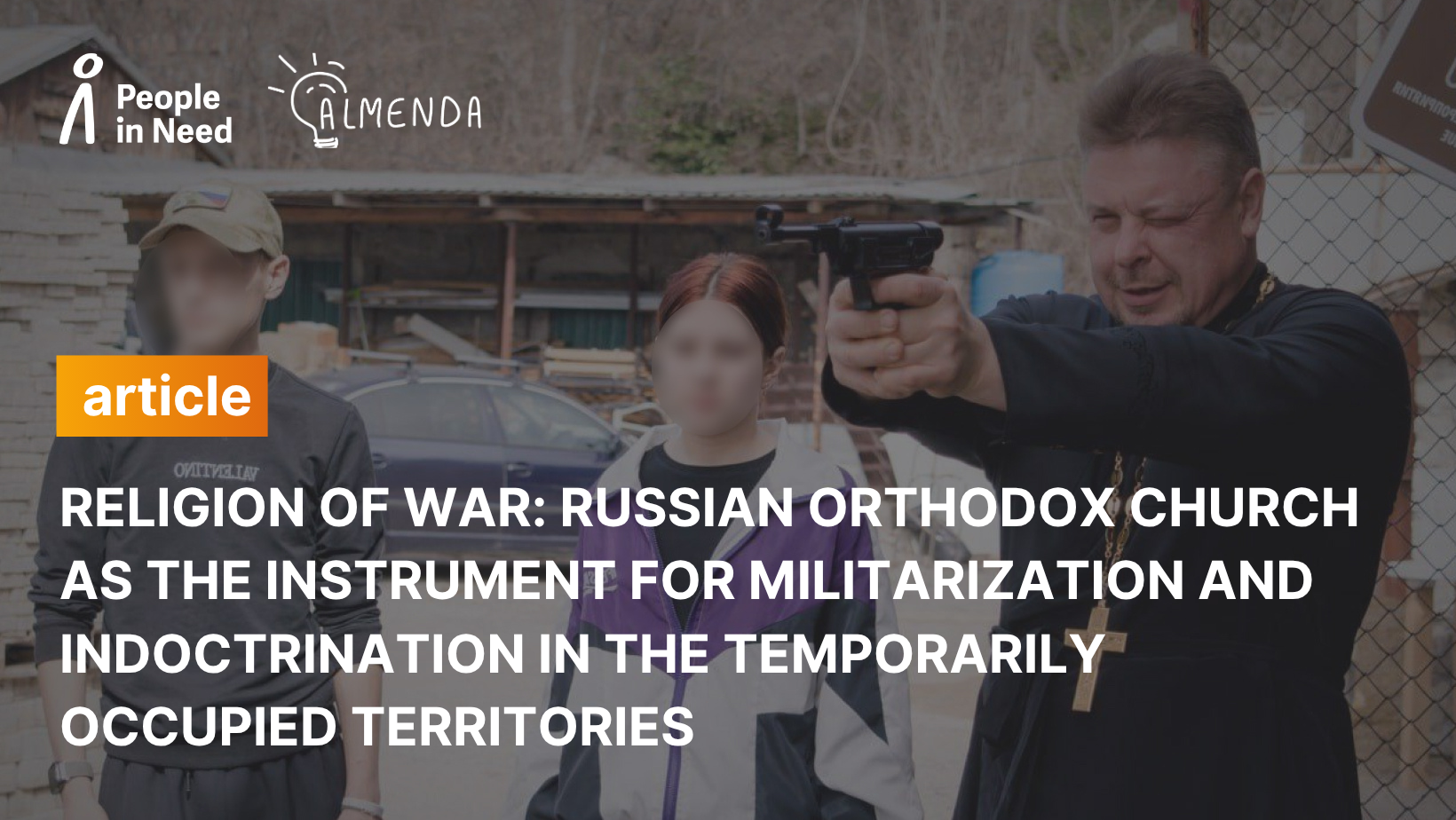

Violation of the right to preserve the child’s identity through the prism of the implementation of education standards of the aggressor state: qualifications and countermeasures


Natalia Mezentsova, a lawyer, a graduate of the educational course of UHHRU “Defense of Human Rights in conditions of Armed Conflict in Ukraine”
Numerous violations of provisions of international humanitarian law (hereinafter – IHL) by and international human rights law (hereinafter – IHRL) by the Russian Federation have been recorded since the beginning of the international armed conflict in Ukraine, which began in 2014. Violations of children’s right to identity, right to education etc., which are being committed, in particular, through the implementation of the Russian education standards and “re-education” of Ukrainian children, are methods that are purposefully used by the Russian Federation for the destruction of Ukrainian identity.
The role of education in the formation and preservation of the child’s identity
In accordance with Art. 8 of the UN Convention on the Rights of a Child obligates state parties to respect children’s right to preservation of individuality, including citizenship, name and family connections, as provided by the law, without unlawful interference. Children’s right to identity is multifaceted and includes various components – right to preserve own nationality, citizenship, name, family connections, cultural and religious affiliation etc. The elements of the right to a children’s identity in complex provide an opportunity to clearly understand where children come from, who they are, and include the opportunity to decide in the future what they will become.
Children’s identity is formed and developed, first of all, in the family environment, in which children live and are raised. At the same time, a significant role in the formation and preservation of children’s identity is played by education, through which a direct influence is exerted on the formation and development of worldviews, national and legal identity, civic position, attitude towards one’s own state and the legacy of its people, etc.
Among the principles of state policy in the field of education and the principles of educational activity, Art. 6 of the Law of Ukraine “On Education” includes the education of patriotism, respect for the cultural values of Ukrainian people, its historical and cultural heritage and traditions; formation of the conscious need to comply with the Constitution and the Laws of Ukraine; formation of civic culture and culture of democracy, etc. (https://zakon.rada.gov.ua/laws/show/2145-19#n2385).
The educational process as an integral component of the study process is aimed at the formation of patriotism, respect for the state language and state symbols of Ukraine, respect and solicitous attitude for national, historical, cultural values, the intangible cultural heritage of the Ukrainian people, a conscious duty to defend sovereignty and territorial integrity of Ukraine in case of need.
Education can be characterized as an external factor, which directly affects the formation and preservation of children’s identity. The right to education is closely related to children’s right to identity, taking into account the objectives and principles of educational activities.
Implementation of the right to education in conditions of armed conflict in Ukraine
The exercise of the right to education in conditions of the armed conflict is difficult due to objective reasons and depends on various factors – the intensity of hostilities, the occupation of certain territory, the destruction and damage of educational institutions, the possibilities of education seekers to obtain access to education, etc. The right to education in conditions of the martial law can be limited, however, the conditions of the armed conflict cannot be an unconditional and indisputable justification for its violation.
Typically, ensuring the right to education is carried out by the state, under whose jurisdiction children are, taking into account the provisions of IHL and IHRL, imposes obligations on the occupying state to facilitate the exercising of this right. It is noteworthy that Ukraine creates conditions for exercising the right to education of children, who were forced to leave their places pf residence and evacuated abroad, and for children, who remained in the occupied territories, that is, for those, who de-facto fell out of its jurisdiction.
In the Ukraine-controlled territories, in which there are no active hostilities, the exercising of the right to education is generally ensured at the appropriate level, as far as possible in wartime conditions.
The situation in the temporarily occupied territories of Ukraine significantly differs from the territories under the control of Ukraine. Given that effective control over the temporarily occupied territories of Ukraine is carried out by the Russian Federation, this imposes on it the obligation to comply with the provisions of the IHL regarding the treatment of civilians, to comply with the provisions of the IHRL regarding the persons who are under its jurisdiction, which involves the imposition of obligations regarding guaranteeing the right to education of children under its jurisdiction.
Art 50 of the Geneva Convention Relative to the Protection of Civilian Persons in Time of War (hereinafter referred to as IV Geneva Convention) defines that occupying power, in cooperation with state and local authorities, must facilitate the proper functioning of institutions responsible for the care children’s and their education (https://zakon.rada.gov.ua/laws/show/995_154#n193).
In fact, provided that Russian Federation complies with this provision and other norms of the IHL, children could have continued their education in Ukrainian educational institutions without experiencing any changes in the educational process. However, the reality of the occupied territories shows that neither state and local authorities, nor Ukrainian educational institutions have the ability to function in these territories. In some cases, educational institutions are being destroyed or ruined, in other cases – educational institutions subordinate to the Russian system are created on their basis, which violates the rights of Ukrainian children to education.
Art. 50 of the IV Geneva Convention defines the exceptions under which the occupying state independently organizes education of children who remain in the occupied territory. Part 3 of the Article 50 of IV Geneva Convention specifies that, if local institutions are unable to provide support and education to children, the occupier state must take all necessary measures to provide those to the children who lost their parents or were separated with them as a result of war and who have no opportunity to receive necessary care from a close relative or friend; education should be carried out by persons of their nationality , language and religion, if it is possible.
The organization of the education of Ukrainian children, who remained in the occupied territories, is carried out by the Russian Federation exclusively according to the Russian standards and is not subject to exceptions provided for in Part 3 of Article 50 of the IV Geneva Convention. Even the involvement of Ukrainian teachers in teaching according to the Russian standards, who have been previously re-qualified by the Russian Federation, does not indicate the compliance with the right to education. The exercising of the right to education involves not only providing education, but also ensuring the quality of education, which envisages that Ukrainian children who remained in occupation will be provided opportunity to continue receiving education according to the Ukrainian standards and in accordance with the established principles of educational activity.
The implementation of the Russian standards of education as a way of destroying Ukrainian identity
Part of the Ukrainian territories was unlawfully included in the Russian Federation, in other occupied territories, illegal bodies of occupation authorities are being created, which include illegally created education management bodies that implement Russian standards.
Since 2014, the educational process in the occupied territories of Ukraine was changed to the standards of the occupied territories or the Russian ones, and later it was completely subordinated to the Russian standards. A big problem is that some Ukrainian children are receiving education only according to the Russian standards, which makes it impossible for them to form their Ukrainian identity through education.
According to the Institute of Educational Analytics, only after the occupation of Crimea and a part of Donetsk region in 2014, for the next academic year, the number of institutions of full general secondary education decreased by 1690 (https://iea.gov.ua/wp-content/uploads/2023/07/az_dinamika.pdf). The further deterioration of the situation with access to education is caused by the ruination or the destruction of educational institutions as a result of hostilities, the illegal inclusion of Ukrainian territories in the Russian Federation, the occupation of new territories in which the education standards of the occupier state are implemented without the alternative of studying according to the Ukrainian ones.
In the territories of Ukraine, which have been occupied since 2022, the occupying power is creating educational institutions that are part of the education system of the Russian Federation using the material and technical base of the Ukrainian educational institutions. The educational process is entirely carried out according to the Russian standards, in the Russian language, and includes a powerful propagandistic component that which aims to “Denazify” Ukrainian children and form the worldview needed by the aggressor state.
Under the guise of fulfilling the obligations to ensure the right to education, the Russian Federation is exercising its intention to destroy the Ukrainian identity. Teaching according to the Russian standards, denying the heritage of the Ukrainian people, and imposing patriotic education is a violation of the right to child’s identity, given that the educational process is aimed at changing the self-awareness of one’s national and legal affiliation and imposing Russian identity on children. At the same time, it is de-facto impossible to refuse from receiving Russian education in the occupied territories due to the intimidation and threats by the occupation authorities to simply take children away from their parents (https://almenda.org/wp-content/uploads/2022/10/Final_zvit_2.pdf ).
Russian textbooks have become a powerful instrument of propaganda, a weapon that recodes our children in the occupied territories. Their main goal is to incite enmity, hatred of our children towards Ukraine, and destroy their Ukrainian identity by imposing the Russian one (https://www.ukrinform.ua/rubric-presshall/3754356-skilna-osvita-v-okupacii-rosii-rozpaluvanna-vorozneci-ta-znisenna-ukrainskoi-identicnosti.html ).
Art. 28 of the UN Convention on the Rights of the Child specifies that member states recognize the children’s right to education. At the same time, Art. 29 of the Convention details the focus of education on cultivation of respect for the language and cultural values of the country, in which children live, the country of their origin. The right to education is considered to be ensured in case of simultaneous compliance with Art. 28 and Art. 29 of the Convention.
The education that Ukrainian children receive in conditions of occupation from the Russian side is a violation of the Articles 28 and 28 of the UN Convention on the Rights of the Child, taking into account the implementation of its own standards of education in the occupied territories, including the propagandistic component aimed at denying everything Ukrainian and glorifying Russia. The occupying authorities are trying to prove to the international community that they are fulfilling the obligations to guarantee the right to education in the occupied territories. By the demonstrative decisions of the illegal occupying authorities in Zaporizhzhia region, it is allowed to provide education in the Ukrainian language, which is studied mainly as an optional language, and in the occupied Kherson region, it is even allowed to teach in the Crimean Tarar language. However, the combination of these “initiatives” with the propagandistic component, glorification of Russia’s role and justification of its aggression, lessons on patriotic education etc. and education according to the Russian standards, confirms the fact that such actions are carried out exclusively for external demonstration and have nothing to do with the fulfillment of the right to education and the right to preserve the identity.
By imposing the Russian narratives on children that remain in the occupation, and subjecting them to patriotic educational activities, the Russian Federation also violates Article 14 of the UN Convention on the Rights of the Child regarding the freedom of thought, conscience, and religion, which is directly related to the right to identity.
The situation with Ukrainian children who were forcibly relocated or deported by the Russian Federation is catastrophic in the context of the violation of the child’s right to identity and education. When qualifying the violations committed by the Russian side regarding the forcible relocation and deportation, it is possible to assert not only the violation of the right to identity and education, but also to qualify such actions at the genocide of the Ukrainian people, given the large-scale, targeted and pre-planned measures that carry a systemic nature, aimed at destroying the Ukrainian identity of children, which is carried out, first of all, through education. The Russian Federation violently and premeditatedly destroys all the elements of children’s identity, including, in a number of cases, changing their name, citizenship, national and political affiliation, breaking family ties etc. (https://www.osce.org/files/f/documents/7/7/542751.pdf?fbclid=IwAR1UPnYCy8I31RmzMk1xJUDqbEXd0ohy_z4TXV3gAAeU_ULBwUoO2s41jPg).
It can be argued that by imposing the Russian standards and narratives, forbidding the speaking of Ukrainian language, and any manifestations of everything Ukrainian, which is combined with humiliation based on nationality, the Russian Federation is resorting to inhumane or degrading treatment, which is prohibited under international law, for example – the International Covenant on Civil and Political Rights, (https://zakon.rada.gov.ua/laws/show/995_043#Text ) and the customary rules of IHL.
Qualification from the point of international and national law
Traditionally, violations of IHL are classified as serious ones, that constitute war crimes or crimes against humanity, and other violations of IHL. At first glance, the violation of the right of Ukrainian children to education through the implementation of education standards of the aggressor state can be called not serious, since they did not cause serious consequences in the form of harm to the life or health of civilian population, deprivation of conditions for living, or forced relocation. However, a detailed and thorough analysis shows that the violation of the right to education through the implementation of the Russian standards is a part of the global plan of the Russian Federation, which aims eradicate Ukrainian identity and raise a generation of young Ukrainians who will faithfully serve to the Russian Federation. Due to the violation of the right to education, the Ukrainian identity of children and the future of Ukraine in general are under threat.
The Russian Federation grossly and deliberately violates the norms of IHL and IHRL, the obligation to comply with which incumbent upon the entire international community and each state individually.
The destruction of Ukrainian identity through education is also considered in the context of cultural genocide, since the crime of genocide takes into account other aspects, in particular – cultural, and not only the physical extermination of certain group or its forced relocation. At the level of international law, separate responsibility for cultural genocide is not provided, however, such actions of the Russian Federation in combination with the forced relocation and deportation of Ukrainian children can be recognized as a crime of genocide (https://rososvita.imi.org.ua/?fbclid=IwAR07q6Fz4nKPT2mIXZf_NoCT4NrD8lA1KC4fbBSmHuzs5SaWJnYyh0c3IFE ).
The national legislation of Ukraine qualifies the implementation of the standards of education of the aggressor state, which are carried out by the citizens of Ukraine, as actions that imply criminal liability under Part 3 of the Article 111-1 of the Criminal Code of Ukraine – collaborative activity (https://zakon.rada.gov.ua/laws/show/2341-14#Text). The introduction of criminal liability for collaborative activity took place on March 15, 2022, and was intended not only to punish those who agreed to collaborate with the enemy, but also as a preventive measure and a way to remove the collaborative teachers from educational activities for the period determined by the court sentence.
Preservation of the identity of Ukrainian children in the conditions of armed conflict
After a full-scale invasion, changes were made to the legislation of Ukraine in the field of education, aimed at ensuring the exercising of the right to education. The Law of Ukraine “On Education” was supplemented by Article 57-1. State guarantees in conditions of martial law, emergencies, or state of emergency. For education seekers, who were forced to change their place of residence (stay), leave their place of study, regardless of their place of residence (stay), for a special period the organization of education process is guaranteed in a distance form or any other form that is safest for its participants.
Thus, the Ukrainian authorities offer opportunities for continuing education in various forms. At the same time, the occupying authorities artificially create conditions (they block Ukrainian websites, and according to some reports, children’s phones and tablets are checked for studying in Ukrainian schools), under which parents cannot refuse that their children attend educational institutions subordinate to the aggressor state, because this cause negative consequences, even the removal of the child. In order to continue receiving education according to Ukrainian standards, children are forced to undergo double education, while studying in Ukrainian educational institutions is carried out in a secret from the occupation authorities. It is psychologically and physically difficult for a child and causes a misunderstanding of what to believe in and does not contribute to the solid formation of Ukrainian identity.
The problems of preserving the Ukrainian identity of children who remained in the occupied territories are determined by the factors of both objective and subjective nature. Unfortunately, in Ukraine, not only in the occupied territories, there is a percentage of the so-called supporters of the “Russian world”, who raise their children in pro-Russian ideas, which leads to the fact that Ukrainian identity of such children does not have a proper basis for formation. The duration of being in occupation may act as a factor that determines the reluctance to continue studying according to Ukrainian stands due to despair and loss of faith in the liberation of territory, or in some cases simply adaptation to the occupation authorities. Children in the occupied territories are actually in an information vacuum, which makes them victims of the circumstances and conditions which the Russian Federation created artificially.
Factors of an objective nature include the forced imposition of education according to the Russian standards, complications with access to education according to Ukrainian standards due to the problems with the Internet, lack of technical equipment, pressure from the occupation authorities, etc. Pro-Ukrainian teachers in the occupied territories are persecuted, subjected to physical and psychological coercion, which makes it practically impossible for them to carry out their activities in these territories.
The Russian Federation uses education as a means to implement its plan to “Denazify Ukraine”, which is not just a violation of the international law, but a real threat to the future of Ukraine. Preventing the Russian regime to fulfill its illegal intentions of destroying everything Ukrainian and preserving the identity of Ukrainian children is possible only with the help of complex solutions, effective measures from the state and the international community.
The article was prepared by the Center for Civic Education “Almenda” as a part of the project “Steps towards each other: approaching the reintegration of youth from the temporarily occupied territories”. The project is implemented with the financial support of the Ministry of Foreign Affairs of the Czech Republic as a part of the Transition Promotion Program. The views represented in this material belong to authors and do not reflect the official position of the Ministry of Foreign Affairs of the Czech Republic
The article was prepared by the Centre of civil education “Almenda” as a part of the project “Steps towards the meeting: bringing youth from temporarily occupied territories closer to reintegration”. The project is implemented with the financial support of the Ministry of Foreign Affairs of the Czech Republic as a part of the Transition Promotion Program. The views represented in this material belong to the authors and do not reflect the official position of the Ministry of Foreign Affairs of the Czech Republic.



